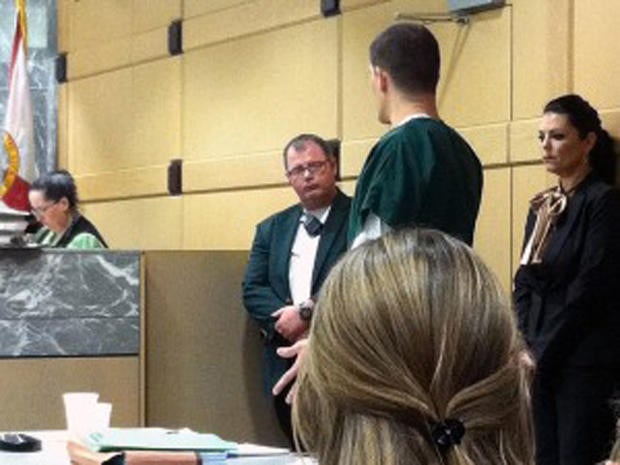Former Marine Paul Gonzalez sentenced to 15 years for beating wife in court
(CBS) FT. LAUDERDALE, Fla. - A former Marine who attacked his wife in a judge's chambers during a divorce proceeding received a sentence of 15 years in jail for the beating.
CBS Miami reports Judge Geoffrey Cohen called Paul Gonzalez's actions "an outrage."
"It was in a court of law where people for hundreds of years have been coming to peaceably resolve their disputes where people have an expectation of safety - certainly where your former wife thought she would be safe," Cohen told Gonzalez during sentencing. "You chose it as a place to viciously assault her."
During the sentencing hearing, Gonzalez, 29, addressed the court and apologized to his ex-wife.
"I hurt the woman I said I loved and I am sorry and I hope that one day she does forgive me," he said. "I disappointed her. I was not a good husband. I wasn't a good best friend."
Gonzalez and his attorneys wanted the judge to issue a lesser sentence of around four years in prison. A psychiatric expert who testified for the defense told the judge Gonzalez suffers from personality disorder, post-traumatic stress disorder, and bi-polar disorder.
In February, Gonzalez pleaded 'no contest' to charges of beating his now-ex-wife in April 2011.
The couple was discussing final details about their divorce when Gonzalez lunged at his wife, Catherine Scott, and repeatedly punched her. Bailiffs had to Taser Gonzalez twice to subdue him. Police said he got enraged when the judge ordered him to pay child support for their children.
Scott suffered a broken nose, fractured jaw and concussion.
Scott told the court that she was so badly beaten her kids and others were scared of her.
"I couldn't even go pick up my children from day care because there were complaints I was frightening the other children," Scott said.
Judge Cohen also apologized to Scott.
"Under very emotional circumstances the fact that there was no security in place, frankly, is inexcusable," Judge Cohen said.
Gonzalez heads to prison and his attorney fears he will not get the help he needs.
"He's a young man who has some serious mental health illnesses that need to be addressed and by sentencing him to the maximum sentence surely will not help that," said Swickle.
